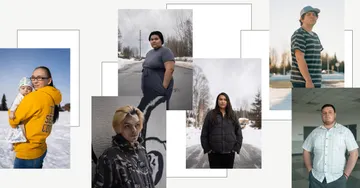The Republican National Convention will open in Cleveland on Monday, bringing together the thousands who have come to pick a candidate for president and the thousands more who are expected to demonstrate for a cause, or condemn the proceedings and the presumptive nominee, Donald Trump.
Trump’s volatile campaign alone was likely to draw demonstrations, but the recent fatal police shootings of black men in Louisiana and Minnesota, and the murder of five Dallas police officers by a black man bent on exacting his own form of racial justice, have the potential to turn Cleveland’s streets into a battleground of protest. And with that comes the possibility for a large number of arrests at the hands of a large contingent of very wary cops, some drafted from other cities but the majority from the city’s police department, which has been under federal oversight for its history of abuse.
If you’re careful, though, you can take to the street, make your point and not be arrested. Here are some tips on what to avoid to stay out of handcuffs:
Talking back to cops
Basic advice, right? But still worth remembering. Local civil rights experts warn that mouthing off to an officer is one of the easiest paths to a jail cell. “Do your best to do what they ask you to do. If they say ‘Move along,’ don’t stand there and argue with them,” said Chris Link, executive director of ACLU Ohio.
There are a slew of city and state laws in Cleveland that criminalize verbal disputes with cops. On a punishment scale — beginning with the lighter penalties — there is “disorderly conduct,” which, depending on whether a person violates the Cleveland ordinance or the state statute, can generally result in either no jail time with a $150 fine or up to a $1,000 penalty along with six months behind bars.
Next on the scale, “obstructing official business,” a charge that could result in a $750 fine and three months in jail. “Even if you think what you are being told is wrong, you are required to obey it,” Link said.
A longtime Cleveland civil rights lawyer, Terry Gilbert, said a protester could face a disorderly conduct charge for cursing in an officer’s face. “If you just ask questions on ‘Why you are arresting me? What are you doing that for?’ that’s not enough to arrest you. It has to rise to the level of fighting words,” Gilbert said.
Instead of bickering with an officer, Gilbert suggested that people report questionable police behavior to one of the dozens of trained legal observers who’ve been dispatched to monitor the RNC by the National Lawyers Guild. These men and women, decked out in bright green hats, will try to collect potentially abusive officers’ names and badge numbers, and pass the information to civil rights lawyers for possible legal action.
Blocking the sidewalk
Seasoned demonstrators are well-versed in laws that prohibit them from obstructing vehicular and pedestrian traffic while marching down a busy thoroughfare without the proper permits. A 2015 city ordinance change, spurred by a lawsuit that was filed after protests of police abuse, spells out when an officer has the right to arrest a disobedient activist. City rules state that people are allowed to assemble and voice their opinions without a permit as long as passers-by can still move freely. If officers decide that the protesters are disturbing the flow of traffic, on the sidewalk or in the roadway, several arrest warnings should be made loud and clear. If the standoff continues, new police procedure instructs officers to detain protesters with plastic handcuffs, and to place stickers on their backs marking details of the arrest.
Sending ruckus-causing posts on social media
Think twice before writing a tweet, Facebook post, or Snap that invites groups of people to meet to create a disturbance. In 2011, Cleveland criminalized the “improper use of social media,” which can lead to a fine of up to $150. According to a public records request, however, the police department has reported no arrests for bad behavior on social media.
Refusing to reveal your name
If an officer sees a person committing a crime, or about to commit a crime, state law requires that that person share his or her name if the cop asks for it. Punishment for this offense: Up to 30 days in jail along with a $250 fine. Sanctions for this offense are rare. Cleveland police reported no arrests, since 2010, for those who refused to name themselves.
Trying to sneak past the Secret Service
The Department of Homeland Security has designated the RNC as “a National Special Security Event,” which is protocol when a political party formally nominates its presidential candidate. This means that the Secret Service, rather than the local police, is the lead law enforcement agency. Most of downtown Cleveland has been designated as the “event zone” where city cops will be out on patrol and making arrests. But within this heavily policed pocket sits a more restricted area, called the “secure zone,” where federal agents — and not city cops — will have direct charge.
The secure zone consists of three sites: Quicken Loans Arena and Progressive Field, the main stages of the RNC, and the Huntington Convention Center, which will house journalists. Although most of downtown Cleveland is open to the public, getting into this hyper-protected area requires special credentials and security screenings. Extensive planning went “to ensure that individuals are not able to gain unauthorized access to the secure zone,” said Secret Service spokeswoman Nicole Mainor.
Drones
The Federal Aviation Administration has banned drones and unauthorized flights during the RNC, citing the airspace above downtown Cleveland as “national defense airspace.” The FAA warned in a recent advisory: “Pilots who do not adhere to the following procedures may be intercepted, detained and interviewed by law enforcement/security personnel.”
Bringing a tennis ball, water gun or a ladder….real guns are O.K.
A perplexing range of items — tennis balls, canned foods, glass juice bottles and more than a dozen other things — are banned from the event zone. During past conventions, protesters hurled tennis balls at cops, which signaled to authorities that household goods could be turned into weapons. If a cop sees a person carrying, let’s say, a ladder or a tent near the convention sites, be prepared to be asked to leave. (Firearms, however, are allowed into the event zone because of the state’s open carry laws.)
Talk back when an officer approaches you about possessing one of these items, and you’ll want to refer to item No. 1 on this list.
If things don’t go your way
You ended up in handcuffs? Local criminal justice officials say they have things under control. “I have met with court personnel and prosecutors to ensure that anyone arrested during the RNC appears in court with legal counsel as soon as possible,” said Chief Public Defender Robert L. Tobik, in an emailed statement, who heads the county public defender’s office. “We are prepared to have attorneys available around the clock, if necessary.”
Icons by Gianni Dolce Merda, John T. Garcia, Mike Wirth, and Nick Bluth, respectively. Via The Noun Project.




